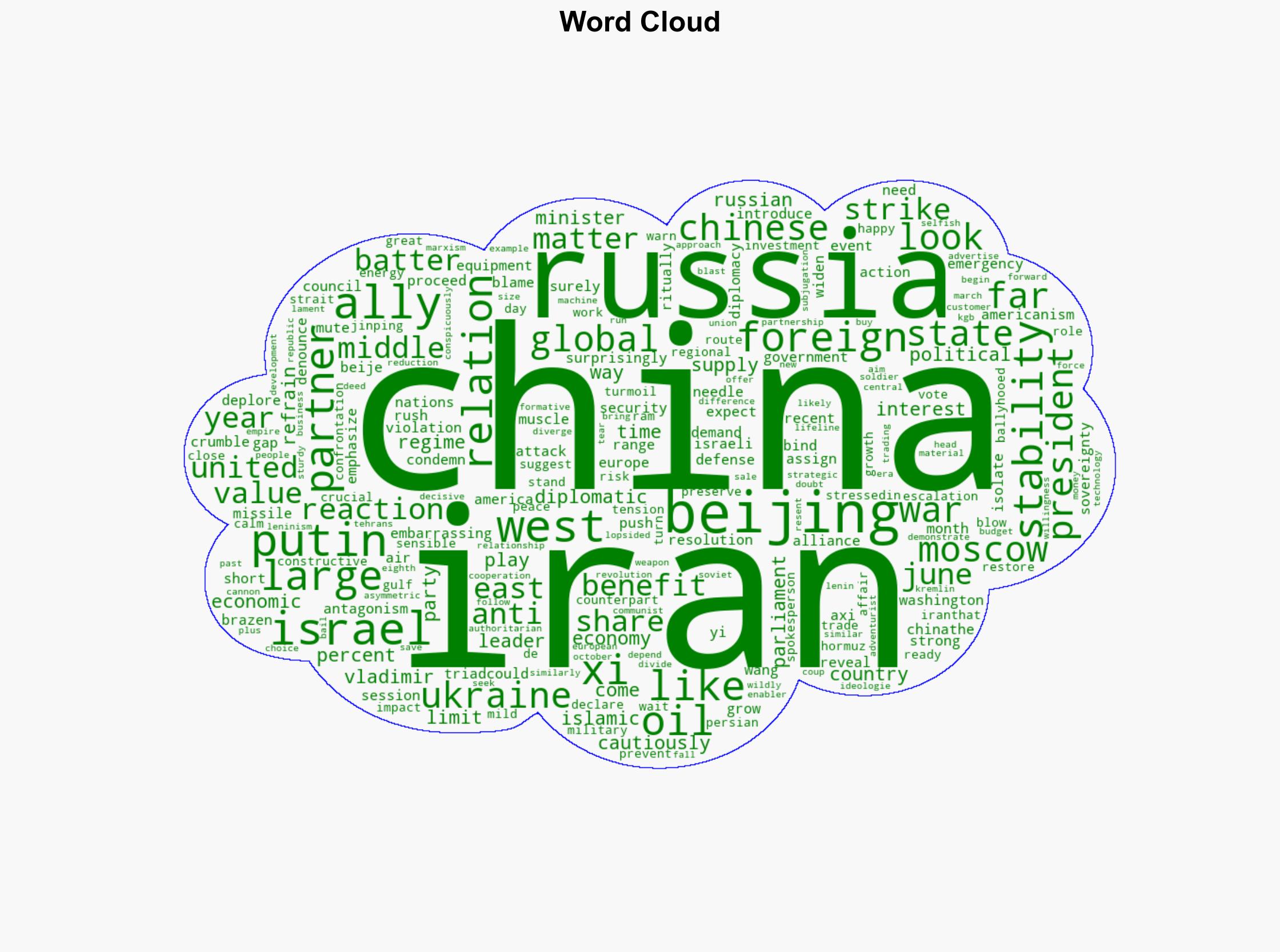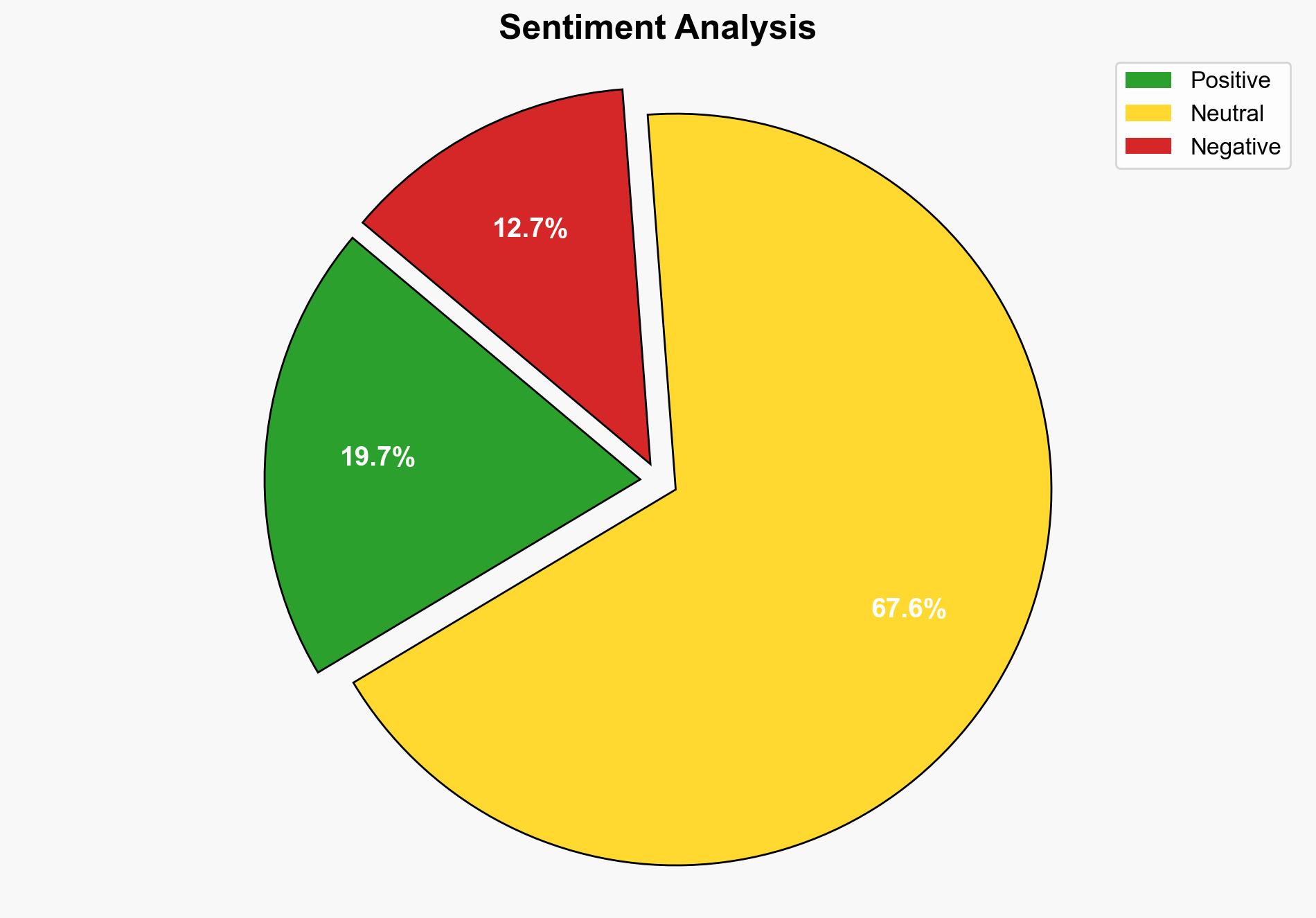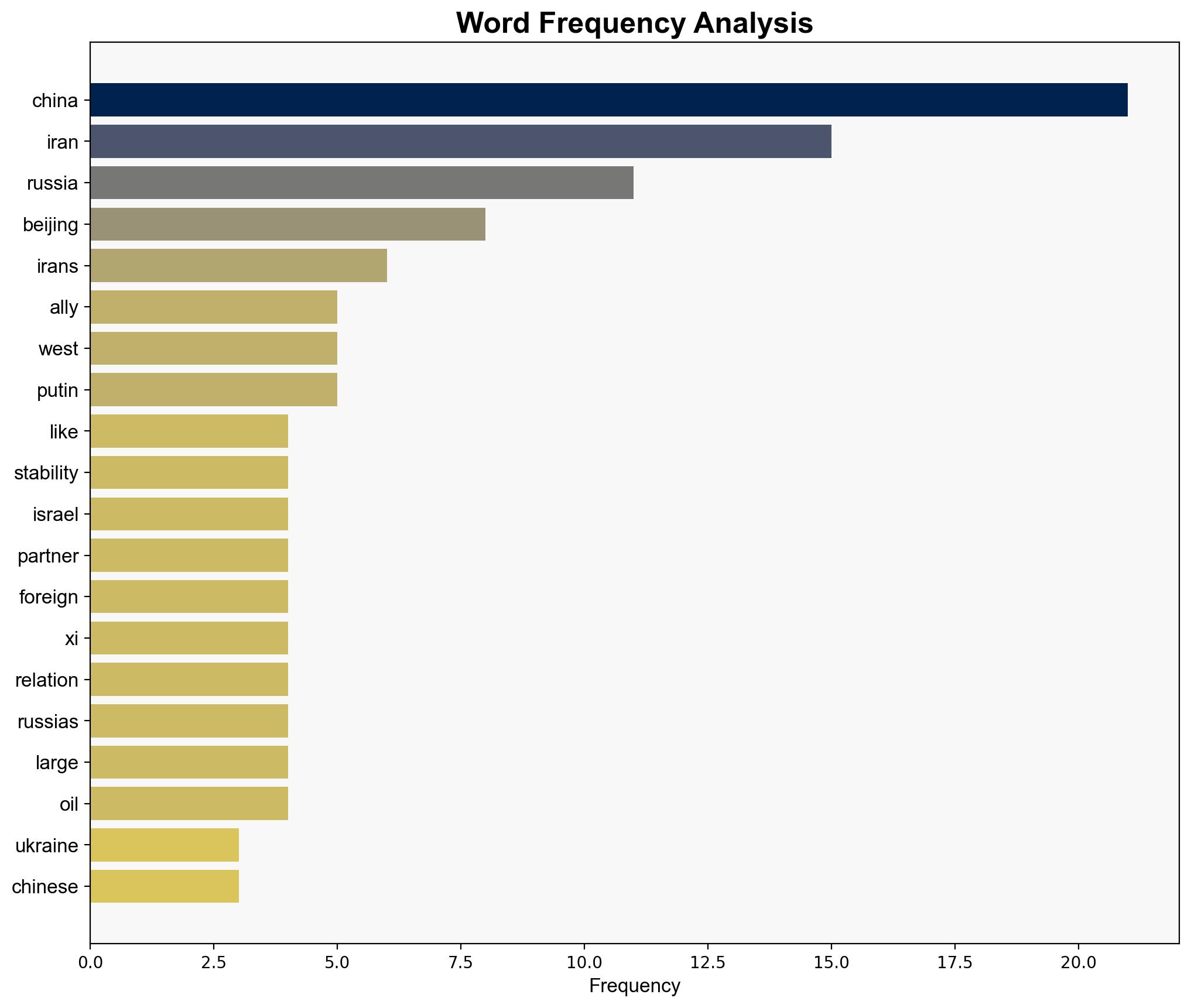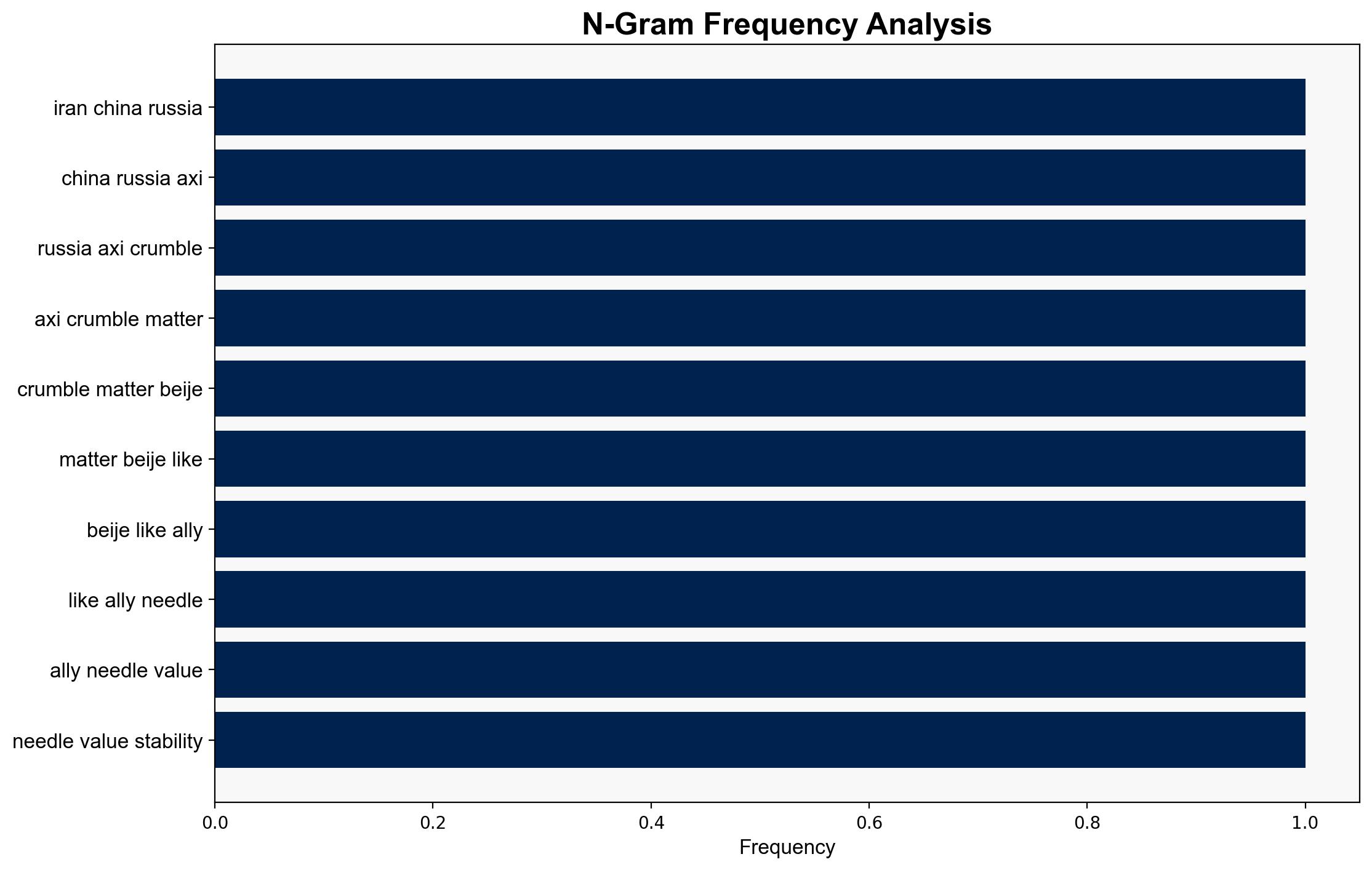The Iran-China-Russia Axis Crumbles When It Matters – The Atlantic
Published on: 2025-06-29
Intelligence Report: The Iran-China-Russia Axis Crumbles When It Matters – The Atlantic
1. BLUF (Bottom Line Up Front)
The strategic alliance between Iran, China, and Russia is showing signs of fragility, particularly in response to recent geopolitical tensions involving Israel and the United States. Despite shared antagonism towards the West, the alliance’s reactions to critical events have been muted, revealing underlying asymmetries and divergent interests. This report recommends monitoring the evolving dynamics within this axis and preparing for potential shifts in regional power balances.
2. Detailed Analysis
The following structured analytic techniques have been applied to ensure methodological consistency:
Causal Layered Analysis (CLA)
At the empirical level, the muted responses from China and Russia to Iran’s tensions with Israel highlight a preference for stability over confrontation. Systemically, the alliance is strained by economic dependencies and political asymmetries, with China and Russia prioritizing their broader global interests. The worldview level reveals a shared but superficial anti-Western sentiment, while the myth level underscores the limits of ideological alignment.
Cross-Impact Simulation
The alliance’s instability could lead to increased regional volatility, impacting global trade routes, particularly through the Strait of Hormuz. Economic dependencies, such as China’s reliance on Iranian oil, may influence diplomatic postures and military engagements.
Scenario Generation
Potential scenarios include a strengthened alliance in response to increased Western pressure, a further divergence due to economic priorities, or a realignment of regional powers if one member state shifts its strategic focus.
3. Implications and Strategic Risks
The alliance’s fragility poses risks to regional stability, particularly in the Middle East. Economic dependencies and political asymmetries may lead to unpredictable shifts in alliances. The potential for military confrontations or economic disruptions could have cascading effects on global markets and security frameworks.
4. Recommendations and Outlook
- Enhance diplomatic engagement with China and Russia to mitigate potential escalations in the Middle East.
- Strengthen economic and security partnerships with regional allies to counterbalance the Iran-China-Russia axis.
- Monitor economic indicators and military movements for early warning signs of alliance shifts.
- Scenario-based projections:
- Best case: The alliance stabilizes, leading to a more predictable geopolitical landscape.
- Worst case: Increased tensions lead to regional conflicts, disrupting global trade and security.
- Most likely: Continued strategic ambiguity with periodic diplomatic engagements.
5. Key Individuals and Entities
Xi Jinping, Vladimir Putin, Wang Yi
6. Thematic Tags
national security threats, geopolitical instability, Middle East tensions, strategic alliances




